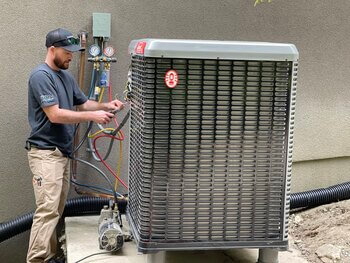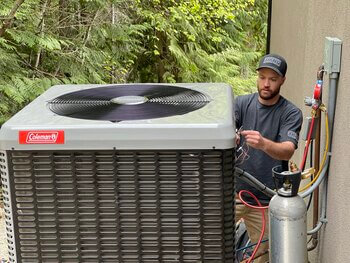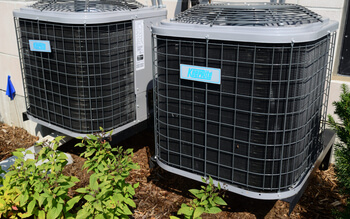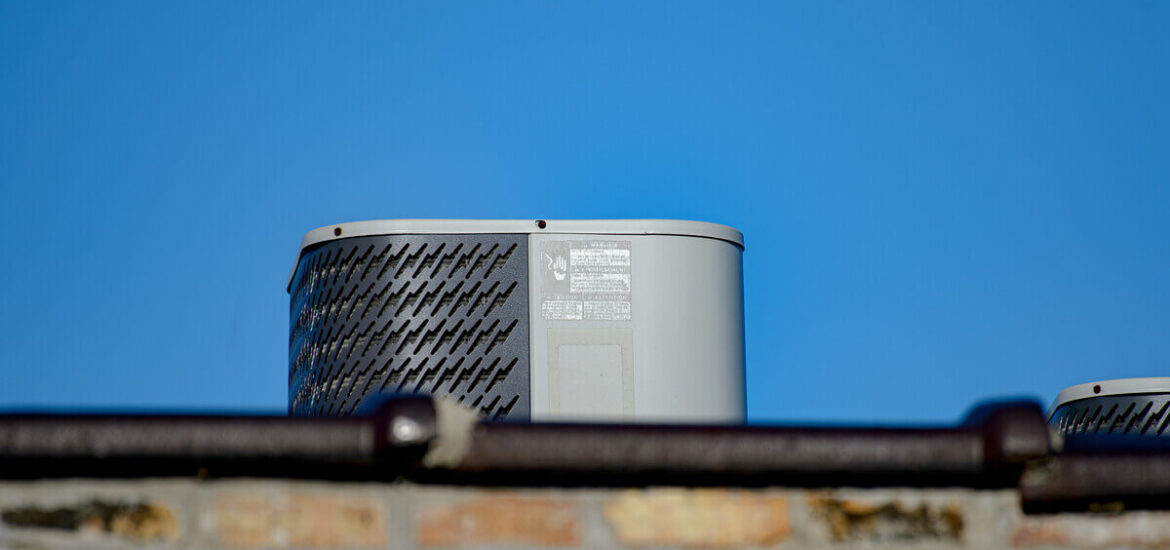When it comes to keeping your home comfortable year-round, you have a range of options. Among the most popular choices are heat pumps and HVAC (Heating, Ventilation, and Air Conditioning) systems. Both systems serve to regulate indoor temperature, but they operate differently and come with their own set of advantages and disadvantages. In this blog post, we’ll dive into the world of heat pumps and HVAC systems, comparing their features, efficiency, cost, and environmental impact to help you make an informed decision for your home.
Understanding Heat Pumps
A heat pump is a versatile heating and cooling system that can efficiently heat your home during the winter and cool it during the summer. Here’s how it works:
Heat Transfer
Heat pumps work on the principle of heat transfer. Instead of generating heat directly, they move heat from one place to another. In the winter, they extract heat from the outside air or ground and transfer it inside your home. In the summer, the process is reversed, removing heat from your home and releasing it outdoors.
Efficiency
One of the primary advantages of heat pumps is their energy efficiency. Because they move heat rather than generate it, they can provide up to four times the amount of heat energy compared to the electricity they consume. This can result in significant energy savings on your heating and cooling bills.
Year-Round Comfort
Heat pumps offer year-round comfort since they can both heat and cool your home. This versatility eliminates the need for a separate air conditioning system, simplifying your HVAC setup.
 Environmental Impact
Environmental Impact
Heat pumps are considered environmentally friendly because they use electricity to move heat, which can be generated from renewable sources like solar or wind power. They also produce fewer carbon emissions compared to traditional heating systems that burn fossil fuels.
Exploring HVAC Systems
HVAC systems, on the other hand, encompass a broader category of heating, ventilation, and air conditioning solutions. Traditional HVAC systems often consist of a furnace for heating and a separate air conditioning unit for cooling. Here’s a closer look at HVAC systems:
Heating and Cooling Components
HVAC systems use a furnace or boiler to generate heat during the winter. In the summer, they rely on an air conditioning unit to cool the indoor air. These systems typically use different fuel sources for heating, such as natural gas or oil.
Versatility
While HVAC systems excel at providing reliable heating and cooling, they may require additional components to improve indoor air quality, such as air purifiers or humidifiers. This can add complexity and cost to your HVAC setup.
Efficiency
The efficiency of HVAC systems can vary widely depending on the type of equipment and fuel source used. Newer, high-efficiency models can offer energy savings, but they may still fall short of the efficiency levels achieved by heat pumps.
Environmental Impact
HVAC systems that rely on fossil fuels for heating can have a higher environmental impact due to carbon emissions. However, some modern HVAC systems are designed to minimize emissions and improve efficiency.
Comparing Heat Pumps and HVAC Systems
Now that we’ve explored the basics of both systems, let’s compare them in various aspects:
Energy Efficiency
Heat pumps are generally more energy-efficient than traditional HVAC systems. They can provide both heating and cooling using less energy, leading to lower utility bills.
Initial Cost
HVAC systems can have a lower upfront cost compared to heat pump installations. However, the long-term savings on energy bills with a heat pump can offset the initial investment.
Maintenance
Both systems require regular maintenance to ensure optimal performance. Heat pumps may require less maintenance due to fewer moving parts.

Lifespan
Heat pumps and HVAC systems can have a similar lifespan, typically ranging from 15 to 20 years with proper care.
Environmental Impact
Heat pumps are generally considered more environmentally friendly due to their efficient use of electricity. However, the environmental impact of an HVAC system can vary depending on the type of fuel used for heating.
Climate Considerations
Heat pumps may be less efficient in extremely cold climates, as they rely on extracting heat from the outside air. In such regions, a hybrid system that combines a heat pump with a backup heating source may be more practical.
Space Requirements
Heat pumps are often compact and require less space than HVAC systems with separate heating and cooling components.
Choosing the Right System for Your Home
The decision between a heat pump and an HVAC system depends on various factors, including your climate, budget, and environmental preferences. Here are some considerations to help you make the right choice:
Climate
If you live in a moderate climate with mild winters, a heat pump can be an excellent choice. However, in colder regions, an HVAC system with a high-efficiency furnace may be more effective.
 Budget
Budget
Consider your initial budget and long-term savings. While heat pumps may have a higher upfront cost, they often provide better energy efficiency and lower utility bills over time.
Environmental Impact
If reducing your carbon footprint is a priority, opt for a heat pump powered by renewable energy sources. Alternatively, explore high-efficiency HVAC systems with minimal emissions.
Space
Assess the available space in your home. If you have limited space, a heat pump’s compact design may be more convenient.
Maintenance
Think about your willingness and ability to perform regular maintenance. Heat pumps typically require less maintenance than HVAC systems with multiple components.
Conclusion
Choosing between a heat pump and an HVAC system is a significant decision for your home’s comfort and energy efficiency. While both options have their merits, heat pumps are often the more energy-efficient and environmentally friendly choice. However, factors like your climate, budget, and maintenance preferences should guide your decision. By carefully evaluating your needs and considering the information presented in this blog post, you can make an informed choice that ensures year-round comfort and cost savings for your home.

